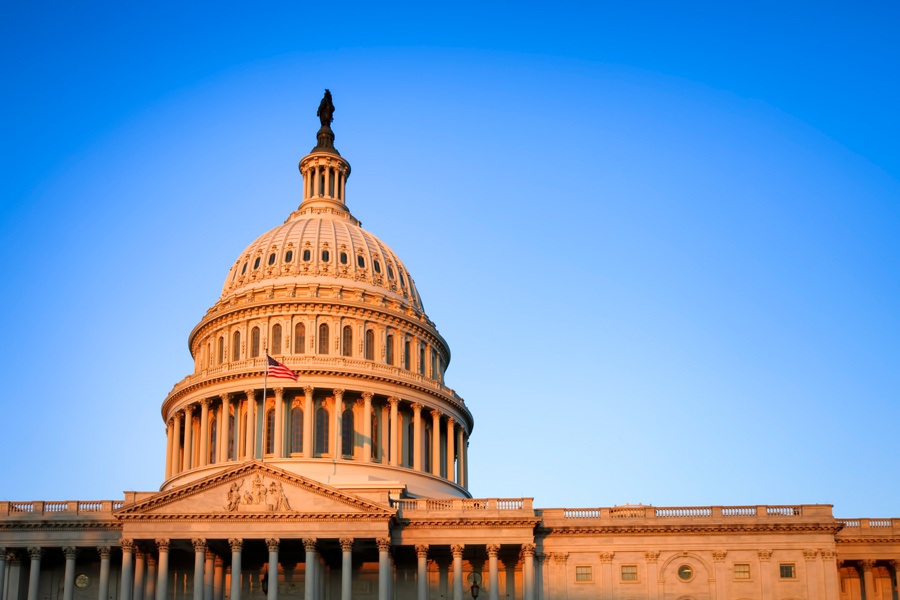

The chair of the House’s tax-writing panel said the $30,000 limit his committee put on the state and local tax deduction is “fair” and lawmakers from high-tax states should accept it.
“It’s not everything that some of the SALT members want, but I have members of our conference that don’t even think that you should be able to deduct $1, let alone $30,000. It’s a fair and balanced approach,” Jason Smith, chair of the House Ways and Means Committee, said Thursday at an Economic Club of Washington DC event.
Demands from New York, New Jersey and California Republicans for a higher limit are one of the few unresolved issues preventing Republicans from advancing President Donald Trump’s economic legislation. Without the SALT lawmakers’ votes, Republicans cannot pass the tax bill.
Several Republican factions, including pro-SALT lawmakers, met in House Speaker Mike Johnson’s office for more than two hours Thursday morning, emerging without an agreement.
“We’re very, very close to a SALT deal,” Johnson said after the meeting. The speaker had previously said he expected a deal on Wednesday.
Republicans plan to work through the weekend on SALT and other unresolved issues, with plans to bring the bill to the House floor next week.
Smith said earlier Thursday he thought his panel had landed on a “good spot.”
Smith spoke a day after his committee advanced the tax-cut portion of Trump’s signature economic legislation, aimed for final passage this summer. The bill would make permanent the individual tax rates reduced in Trump’s 2017 package, and introduce new benefits, including eliminating levies on tips and overtime pay.
Given Republicans’ razor-thin majority in the House, party unity will be vital. But sharp differences over SALT have to be resolved before the economic package is put up for a vote in the House. The current draft raises the cap on that benefit to $30,000, up from a $10,000 limit imposed in 2017, with a phase out for individuals making more than $200,000 a year and couples making more than $400,000.
Several Republicans from high-tax states have called to increase the cap as high as $62,000 for individuals and $124,000 for couples, a proposition that the Committee for a Responsible Federal Budget estimates would cost $900 billion over the course of a decade.
Smith has criticized those demands, saying the vast majority of taxpayers in high-tax areas would have all their state and local tax payments covered by a $30,000 cap.
Florida Republican Byron Donalds, a member of the ultra-conservative House Freedom Caucus, said after the meeting in Johnson’s office that an increase in SALT would necessitate cuts elsewhere, including to Medicaid.
“We have the smallest majorities in the history of Congress,” Smith said. “I could only lose three people. So trying to thread that needle on various provisions including SALT and find that balance is what I’ve been trying to do in this bill.”

The fraudulent "royalty payments" scheme, which involved $106 million in false tax deductions claimed over nearly a decade, reportedly cost the IRS $37 million in tax losses.

Congress should amend regulations to ensure access for all, allowing issuers to spend less time with state regulators and more time building better portfolios.

The Wall Street giant's CEO defends its office-first policy while others argue for remote flexibility, especially for working mothers.

The latest defections from CUSO Financial Services, which operates within LPL, add nearly $500 million in client assets to Osaic's institutional platform.

The campaign series features “Pitch Perfect” film star Anna Kendrick delivering the message, “What if you could?”
How intelliflo aims to solve advisors' top tech headaches—without sacrificing the personal touch clients crave
From direct lending to asset-based finance to commercial real estate debt.
